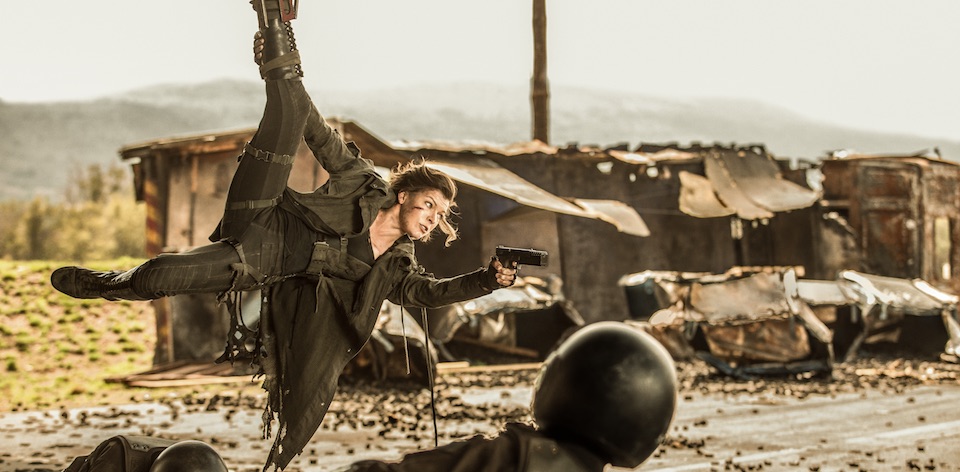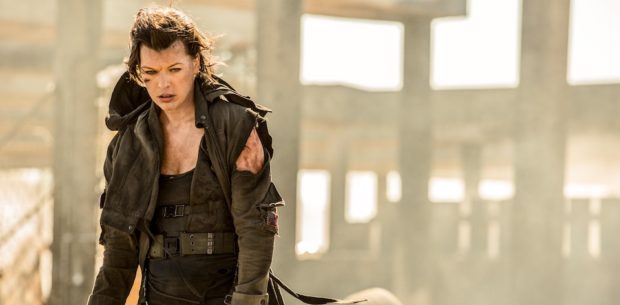Back in 2012, Resident Evil: Retribution left us on a shockingly prophetic cliffhanger, with evil hordes overtaking the White House. Five years later, life is imitating art and the downfall of civilisation is imminent. Yet we can always rely on the video game inspired franchise to give us a glimmer of hope for the future, even if changes its own history as much as the 45th President of the United States.
RESIDENT EVIL: THE FINAL CHAPTER picks up a short time after its predecessor, with Alice (Milla Jovovich) finding herself alone in a Washington D.C. that’s got fewer people in it than the National Mall on Trump’s inauguration day. Unsurprisingly duped by Wesker (Shawn Roberts), the undead armies of the Umbrella Corporation are about to make their final strike against what’s left of humanity when Alice finds an unlikely ally in the Red Queen.
The sixth and probably last entry in the stylish franchise keeps with the tradition of retcons in an exposition heavy opening sequence. Yet what immediately sets Paul W.S. Anderson’s latest flick apart from the earlier ones is the frenetic and discombobulating action sequences. All of them look as though they’ve been shot from six inches away, perhaps hampered by a significantly reduced budget, robbing the picture of any sense of scale until we get to the scene of a giant siege set-piece. An arbitrary ticking-clock motif drives the momentum, but there’s no tangible urgency to proceedings.
On the other hand, Anderson provides us with everything else that we’ve come to expect. In a kind of ‘greatest hits’ package, Ali Larter’s Claire Redfield returns (last seen in Resident Evil: Afterlife) albeit with a significantly diminished presence. There’s also a delightfully scene-chewing turn from Iain Glen as Isaacs, back from Resident Evil: Apocalypse and Resident Evil: Extinction, one that has a literal wink to camera in a rare moment of well-executed action.
As RESIDENT EVIL: THE FINAL CHAPTER pushes itself up the hill towards the conclusion, it becomes clear that Anderson knew exactly how he wanted this to end but had no notion of exactly how to get it there. Even though it answers a major question that has been lingering since the first entry in 2002, you’ll find yourself asking many more questions about the various logic holes on your way out of the theatre. A disappointing end for what has often been a fun franchise that defied critical reason.
[stextbox id=”grey” bgcolor=”F2F2F2″ mleft=”5″ mright=”5″ image=”null”]2017 | US | DIR: Paul W.S. Anderson | WRITER: Paul W.S. Anderson | CAST: Milla Jovovich, Ali Larter, Shawn Roberts, Ruby Rose, Eoin Macken, William Levy, Iain Glen | DISTRIBUTOR: Sony | RUNNING TIME: 106 minutes | RELEASE DATE: 26 January 2017 (US), 27 January 2017 (US), 3 February 2017 (UK) [/stextbox]






